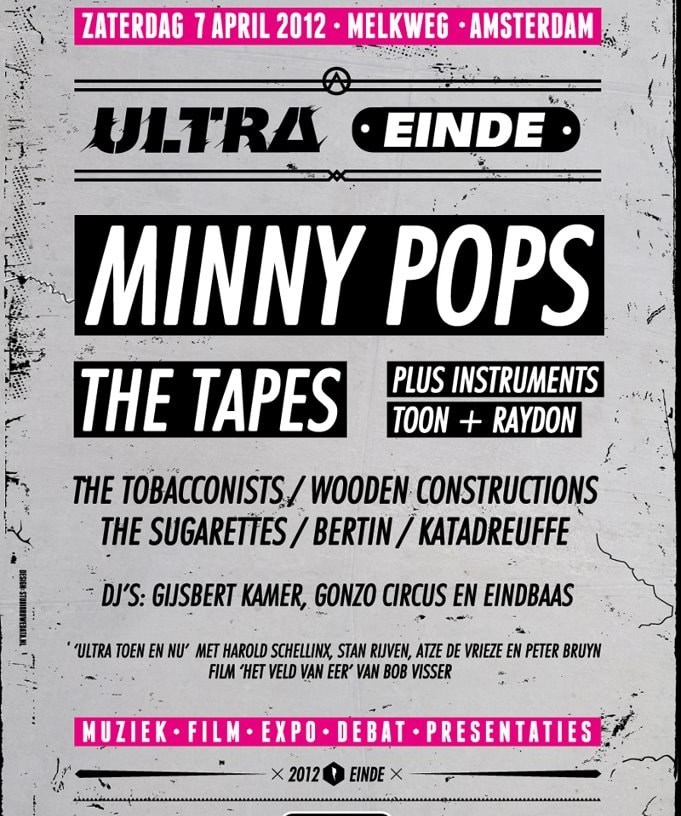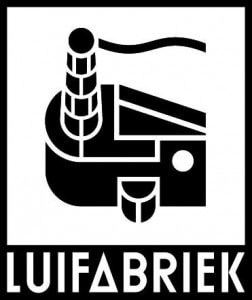Listen Listen
Listen to an interview with Truus with Charlie Crooijmans of Radio Wira Wiri
She discusses the very early days of Plus Instruments and much more!!
She discusses the very early days of Plus Instruments and much more!!

Past & Present
Truus de Groot Talks 11/2015
by Alasdair King
Truus de Groot Talks 11/2015
by Alasdair King
Born in Eindhoven but based in the States, Truus de Groot, has been an unsung hero of experimental and underground music culture for decades. Since 1978, she has been involved in the curation of the Plus Instruments project: a project which has inspired innovation across the world of Electronic music alongside a range of collaborators. At the time, the sheer free will for a group such as Plus Instruments was almost unheard of: their performances were largely improvised and their sound captivating.
Her profile is low key and Plus Instruments is ever changing. She explains the rotation and progressive nature of the group. "It always comes from my own initiative, I decide who to play with. I believe that gives it new life each time. I was more into improvisation and a more minimal approach, less structured, more groove."
At a young age she travelled to New York and began to immerse herself in the nightlife and clubs of the city that never sleeps. The 80's era in the city was an age of creativity, passion and expression, the club and gig scene was alive and moving, but highly competitive. Truus speaks of her youthful energy and life in a new country.
"The NYC mentality was just different but with my Dutch attitude I could be more direct. Somehow it worked with the harshness of NYC at that time. I was essentially reborn there." "I was rather fearless so I would just knock on promoter’s doors and quickly got us gigs: Danceteria, CBGB’s, Peppermint Lounge, Underground, Pyramid etc. The scene was quite cold for my feeling then, not everybody was friendly but I was a fresh immigrant from Holland and I was kind of oblivious. I always felt very confident in my talent, maybe too confident at times but it pulled me through. The NYC mentality was just different but with my Dutch attitude I could be more direct. Somehow it worked with the harshness of NYC at that time. I was essentially reborn there. My name 'Truus de Groot' was old fashioned in Holland, while in NYC it was exotic, being Dutch was somehow charming." Over the years the collaborators involved with Plus Instruments have varied vastly.From Michel Waisvisz, the inventor of the Crackle Synthesizer to James Sclavunos of Sonic Youth and The Cramps. In recent years Truus has led the group in a new approach which has seen her and new collaborators explore Industrial Blues and Jazz haze. However, she feels uninspired by the music scene at present and refers to a lack of imagination and a formulaic approach. She summarises this and the role of women within the world of music.
"Culture has definitely regressed. At least the stuff I know of that is popular. We should be able to do better. Everything seems so formula based nowadays and in any case I don't think gender has much to do with the quality of a genre. I get this so often, you are a woman and here are other women who also create, they want to put me in a compartment of sorts ,see what these women can do ,compared to men. It is so stupid, I'd prefer if they just consider me a human."
The influences behind Plus Instruments is vast and Truus explains that "it comes from a certain place in her heart". Outwith that she has taken inspiration from a variety of factors both musical and external.
"Being poor was an influence. Due to poverty I also always experimented with primitive multi track recording, meaning using two reel to reels or two cassette recorders ,whatever crappy gadget was given to me. I am talking real shitty transistor radio quality gadgets. You get a really gritty sound with all these crazy overtones, nice and dirty. I still use some of these tracks. Other than that to name some: Red Crayola, Suicide, DAF, Wire, Per Ubu, Devo, No Wave NY triggered something, but also stuff like 70’s Disco, Eno, Iggy Pop as well as Gene Vincent, Billy Holiday etc."
In recent years Plus Instruments has been revilatised after a quiet spell, Truus toured Brazil and recorded an album alongside James Sclavunos on drums. She describes a comfortable life in the States, bar the obvious paranoia at the potential spell of Donald Trump as President. There are a number of musical projects in the pipeline as she eagerly describes. "Asides from the pending Emotional Rescue releases: I just produced a solo album called “Surrealist Ball” for a special project by surrealist painters Mark Ryden and Marion Peck, ten original tracks of ballroom music, my style. There is a Plus Instruments worthy track on it too. Also the next album from Plus Instruments, “Signal Through The Waves” recorded in Brazil, featuring James Sclavunos and Paulo Beto is due out this year I hope and I actually have another Plus Instruments album ready to go after that. Then there is a Bodies re-mix by Mason, a DJ in in the Netherlands, i'm not sure when that comes out. I have various other projects cooking..."
Her profile is low key and Plus Instruments is ever changing. She explains the rotation and progressive nature of the group. "It always comes from my own initiative, I decide who to play with. I believe that gives it new life each time. I was more into improvisation and a more minimal approach, less structured, more groove."
At a young age she travelled to New York and began to immerse herself in the nightlife and clubs of the city that never sleeps. The 80's era in the city was an age of creativity, passion and expression, the club and gig scene was alive and moving, but highly competitive. Truus speaks of her youthful energy and life in a new country.
"The NYC mentality was just different but with my Dutch attitude I could be more direct. Somehow it worked with the harshness of NYC at that time. I was essentially reborn there." "I was rather fearless so I would just knock on promoter’s doors and quickly got us gigs: Danceteria, CBGB’s, Peppermint Lounge, Underground, Pyramid etc. The scene was quite cold for my feeling then, not everybody was friendly but I was a fresh immigrant from Holland and I was kind of oblivious. I always felt very confident in my talent, maybe too confident at times but it pulled me through. The NYC mentality was just different but with my Dutch attitude I could be more direct. Somehow it worked with the harshness of NYC at that time. I was essentially reborn there. My name 'Truus de Groot' was old fashioned in Holland, while in NYC it was exotic, being Dutch was somehow charming." Over the years the collaborators involved with Plus Instruments have varied vastly.From Michel Waisvisz, the inventor of the Crackle Synthesizer to James Sclavunos of Sonic Youth and The Cramps. In recent years Truus has led the group in a new approach which has seen her and new collaborators explore Industrial Blues and Jazz haze. However, she feels uninspired by the music scene at present and refers to a lack of imagination and a formulaic approach. She summarises this and the role of women within the world of music.
"Culture has definitely regressed. At least the stuff I know of that is popular. We should be able to do better. Everything seems so formula based nowadays and in any case I don't think gender has much to do with the quality of a genre. I get this so often, you are a woman and here are other women who also create, they want to put me in a compartment of sorts ,see what these women can do ,compared to men. It is so stupid, I'd prefer if they just consider me a human."
The influences behind Plus Instruments is vast and Truus explains that "it comes from a certain place in her heart". Outwith that she has taken inspiration from a variety of factors both musical and external.
"Being poor was an influence. Due to poverty I also always experimented with primitive multi track recording, meaning using two reel to reels or two cassette recorders ,whatever crappy gadget was given to me. I am talking real shitty transistor radio quality gadgets. You get a really gritty sound with all these crazy overtones, nice and dirty. I still use some of these tracks. Other than that to name some: Red Crayola, Suicide, DAF, Wire, Per Ubu, Devo, No Wave NY triggered something, but also stuff like 70’s Disco, Eno, Iggy Pop as well as Gene Vincent, Billy Holiday etc."
In recent years Plus Instruments has been revilatised after a quiet spell, Truus toured Brazil and recorded an album alongside James Sclavunos on drums. She describes a comfortable life in the States, bar the obvious paranoia at the potential spell of Donald Trump as President. There are a number of musical projects in the pipeline as she eagerly describes. "Asides from the pending Emotional Rescue releases: I just produced a solo album called “Surrealist Ball” for a special project by surrealist painters Mark Ryden and Marion Peck, ten original tracks of ballroom music, my style. There is a Plus Instruments worthy track on it too. Also the next album from Plus Instruments, “Signal Through The Waves” recorded in Brazil, featuring James Sclavunos and Paulo Beto is due out this year I hope and I actually have another Plus Instruments album ready to go after that. Then there is a Bodies re-mix by Mason, a DJ in in the Netherlands, i'm not sure when that comes out. I have various other projects cooking..."



